Reflections: On Japan’s Signature Omotenashi
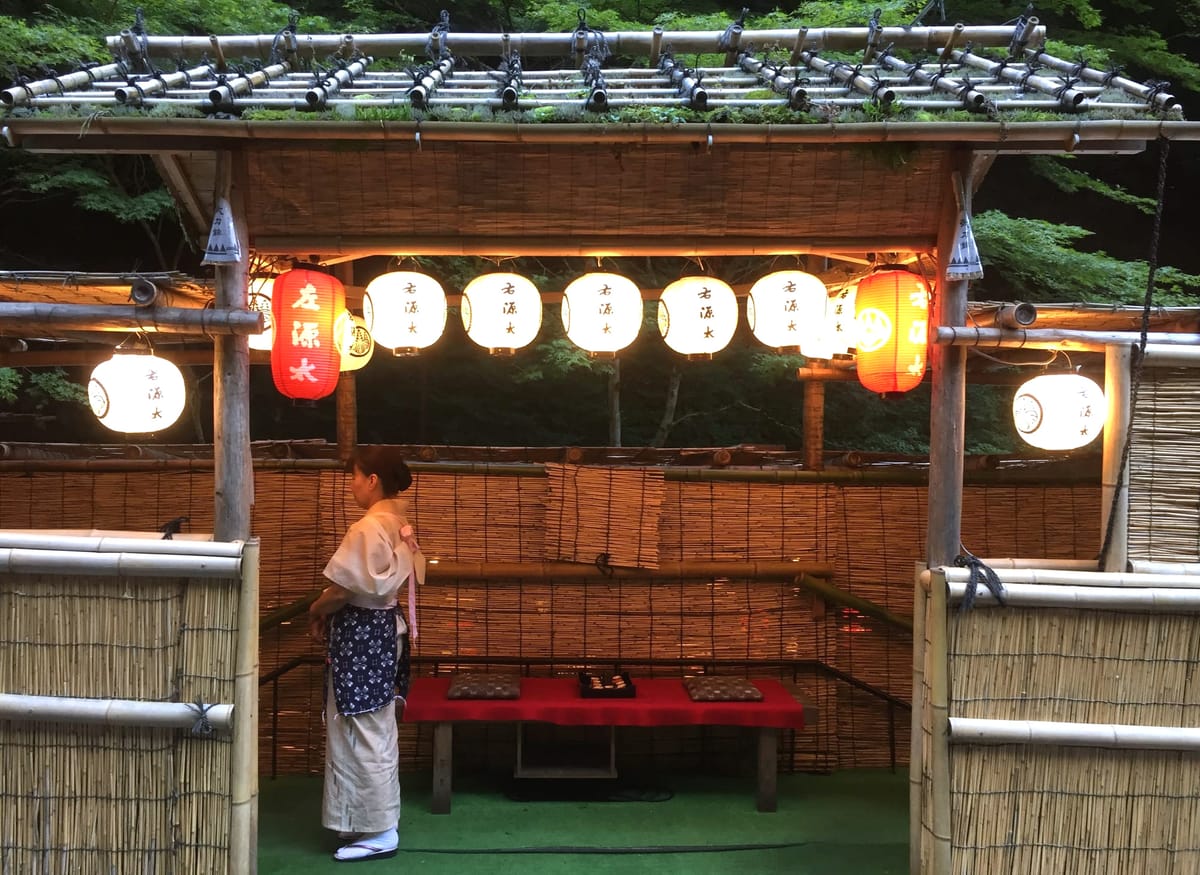
There are few societies in the world where hospitality is more ingrained into the culture than Japan. The entire concept of omotenashi - meaning to 'whole-heartedly look after guests' - seems contradictory at first given the country’s historical isolation from the world - but considering the respect shown to visitors of all origins taking part in a tea ceremony or even something as simple as ordering at a restaurant, hospitality is everything. In my first few minutes after passing through Japanese customs, I was on the shinkansen bullet train traversing Mt. Fuji enroute to Kyoto. The train was silent as a snack cart pulled through the aisles, offering snacks and drinks to passengers. As the cart attendant exited our car and into the next, the attendant silently bowed to all of the passengers–even though every seat in the carriage was facing the other way. No one in the car saw this bow except for me as I curiously strained my neck to observe the surroundings. It was this simple, silent gesture that left an indelible impression on me, one that shaped the perspective of my entire trip henceforth.
You’ll see it in the cleanliness of the streets. The carefully raked sand in the immaculately-coiffed gardens. The presentation of dishes that look more art than food. Their unwavering attention to detail and the desire to carefully construct and preserve their surroundings. In Japan, things might be - at first glance - simple, but everything is done to perfection–even in the contrasting boldness of harajuku, anime, and Shibuya Crossing. In omotenashi’s foundational principles of empathy, anticipation, and authenticity, the traditions and care that are exuded by nearly everyone a visitor encounters feels so very foreign that Japan, in some ways, truly feels like the ends of the earth.
There are few places where this hospitality is demonstrated more than in the ryokans, or traditional inns, that dot the landscape. Like many historic western inns, these began as accommodations along the Edo (Tokyo) - Kyoto trade route in the 17th Century, but their offerings were unique: often located near hot springs for wellness, each would house baths, offer tatami mats for sleeping, rice paper doors, robes, a full kaiseki dinner – and almost always linked by hushed hallways for a soothing experience focused on relaxation and recharge. Some only have a few rooms–and the more popular, hundreds–but until just two decades ago, the ryokan has traditionally been reserved only for Japanese who could navigate the difficult reservations process and language barriers.
Now, enter the rise of the ryokan. Big name brands like the Japanese-rooted Hoshinoya led the charge in its creation of high-rise boxes with ryokan-signatures. But the trend isn’t limited to local companies: Hyatt has just announced their new ryokan brand, Atona. While these new hotel offerings employ modern architecture, flat screens, and bluetooth, they also stick to the traditions like tea ceremonies, locally-made ceramics, elaborate meals, and serene spaces. But the biggest concession that these new ryokans offer to the outside world is a modern reservation system, making the ryokan experience far more accessible to the western visitor. After all, if omotenashi is all about anticipating the guest’s needs, then allowing more to see their authentic traditions will only carry the Japanese brand further. And that’s ultimately what we love about Japan: its simplicity, the adoration of humanized design and art, and their empathy for others from near and far.
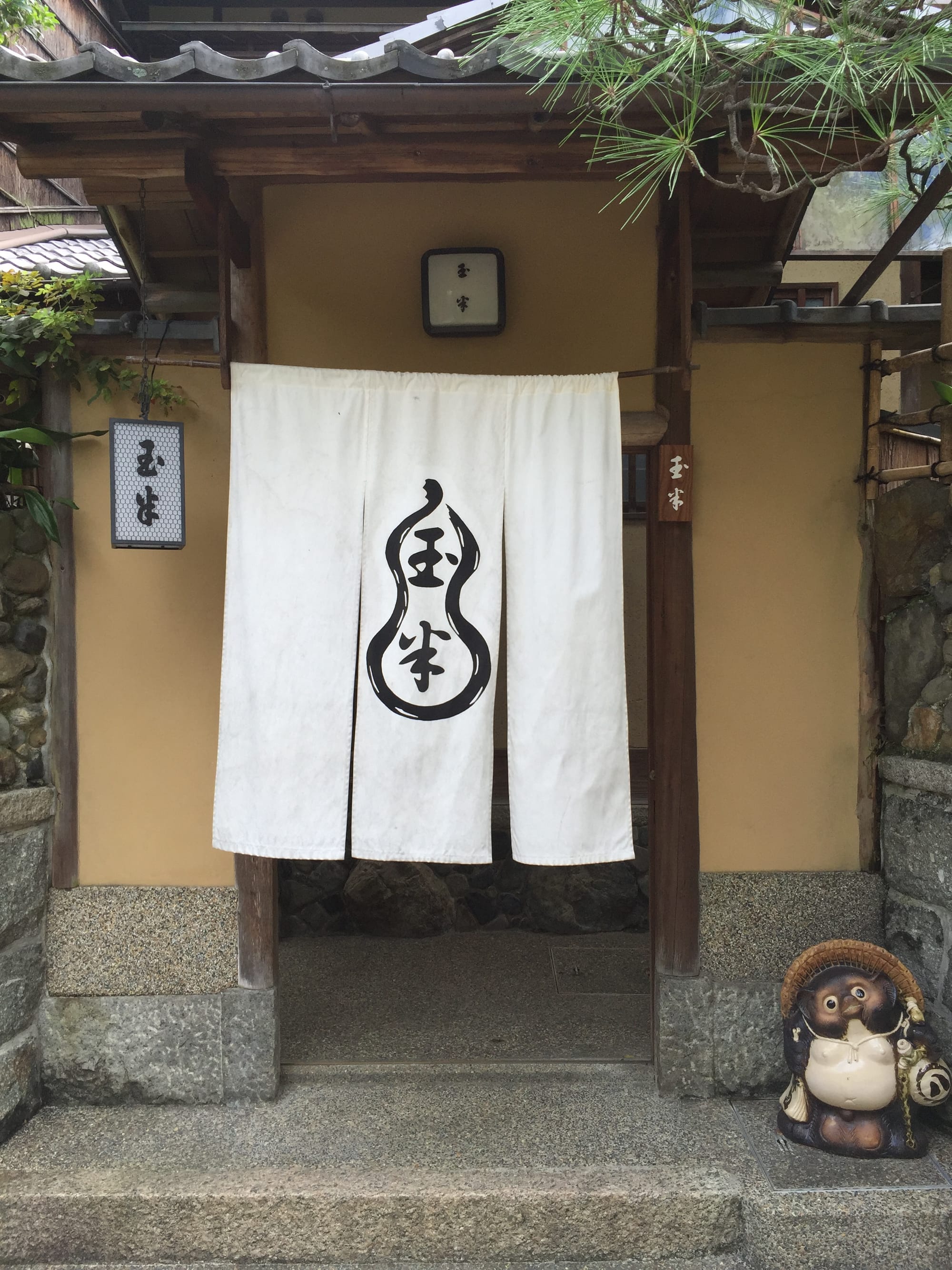
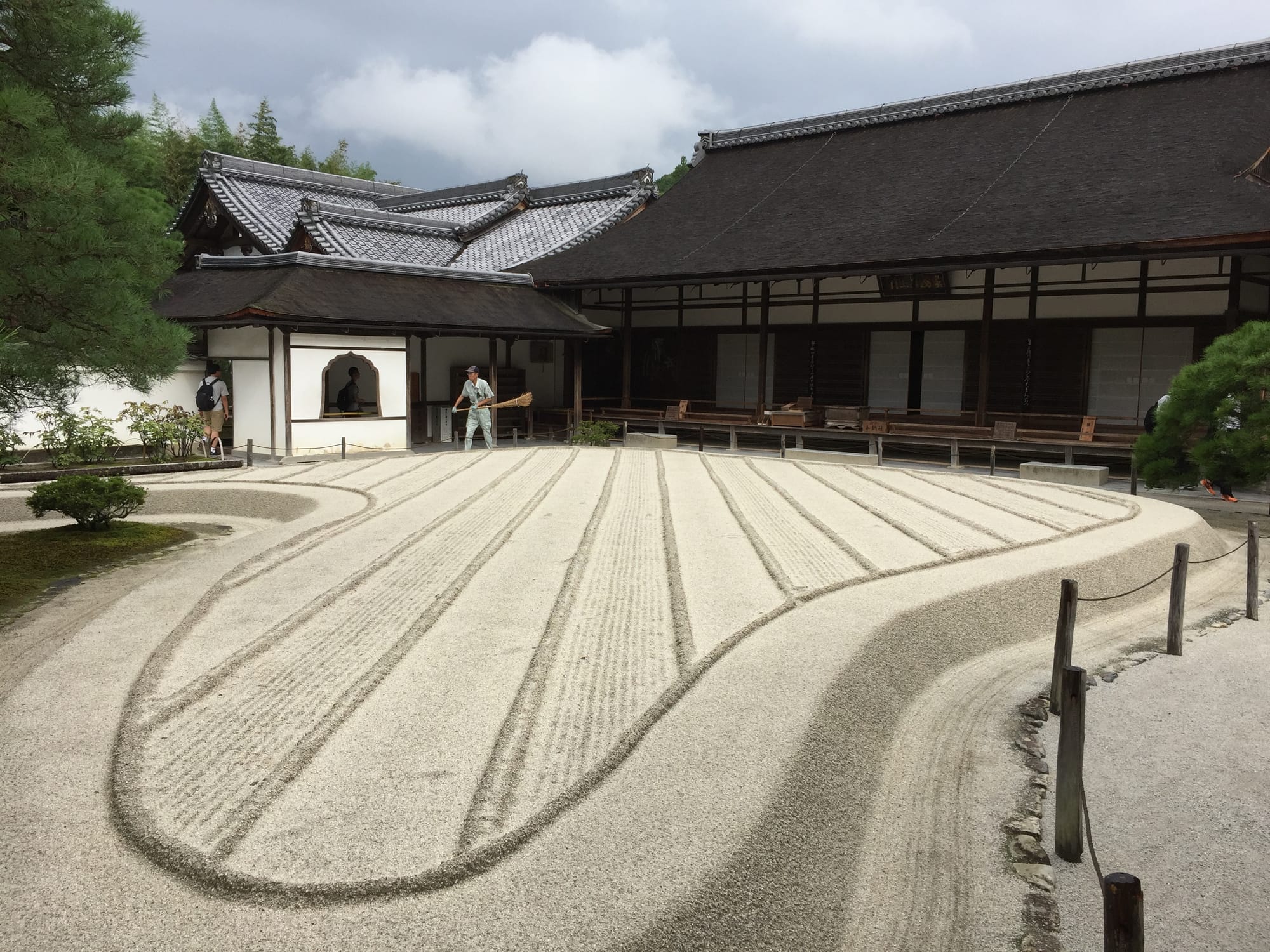
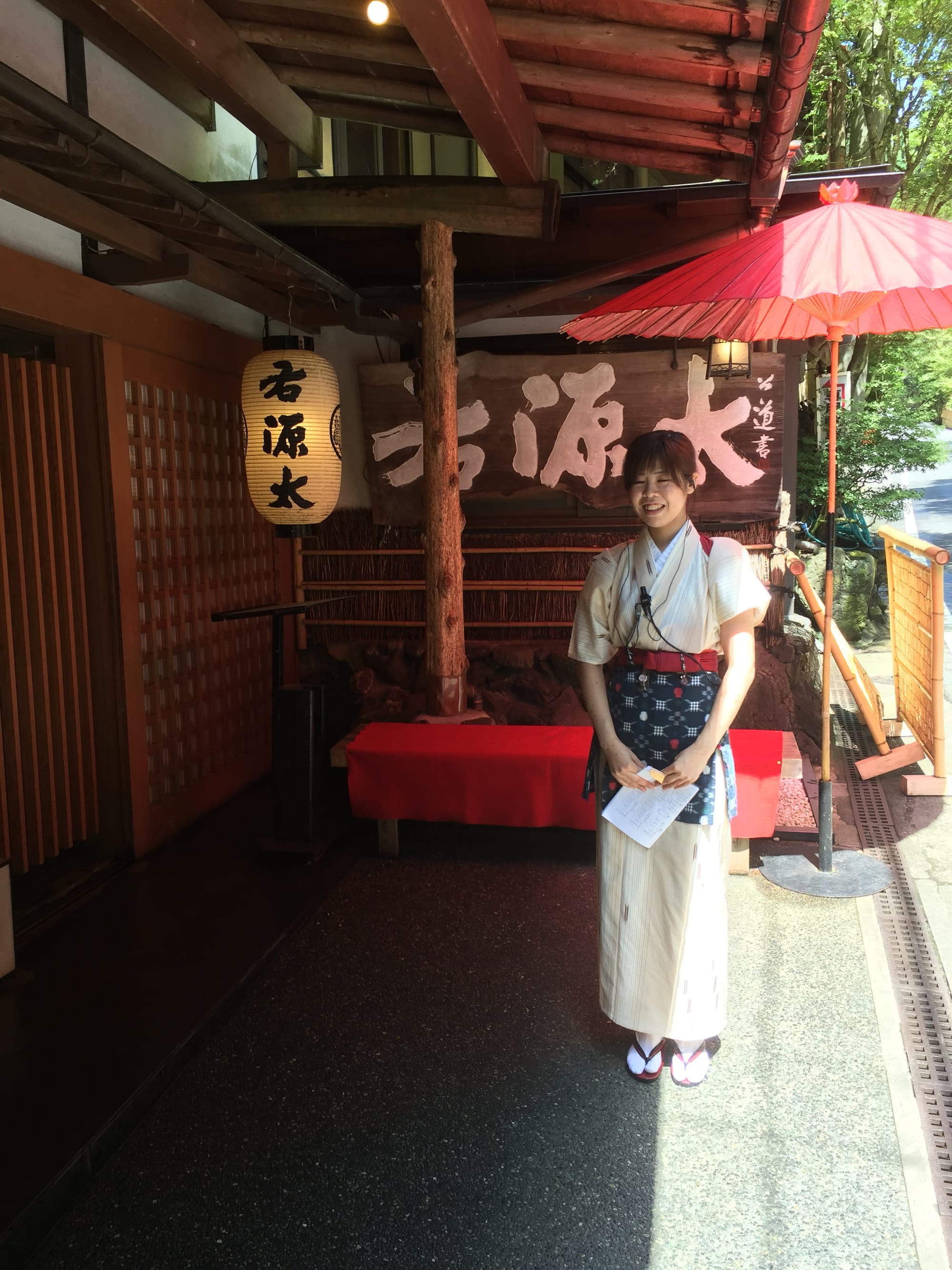
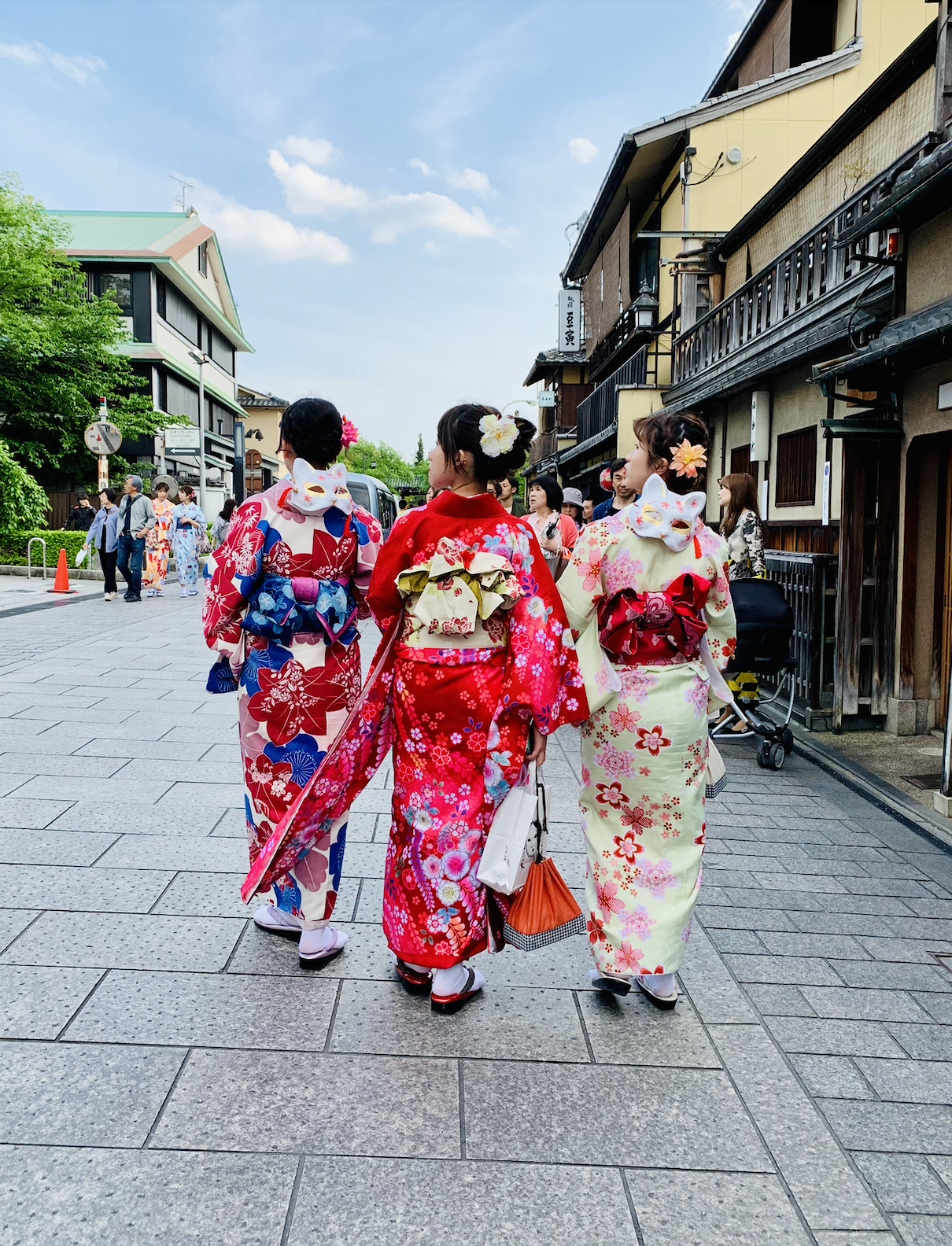
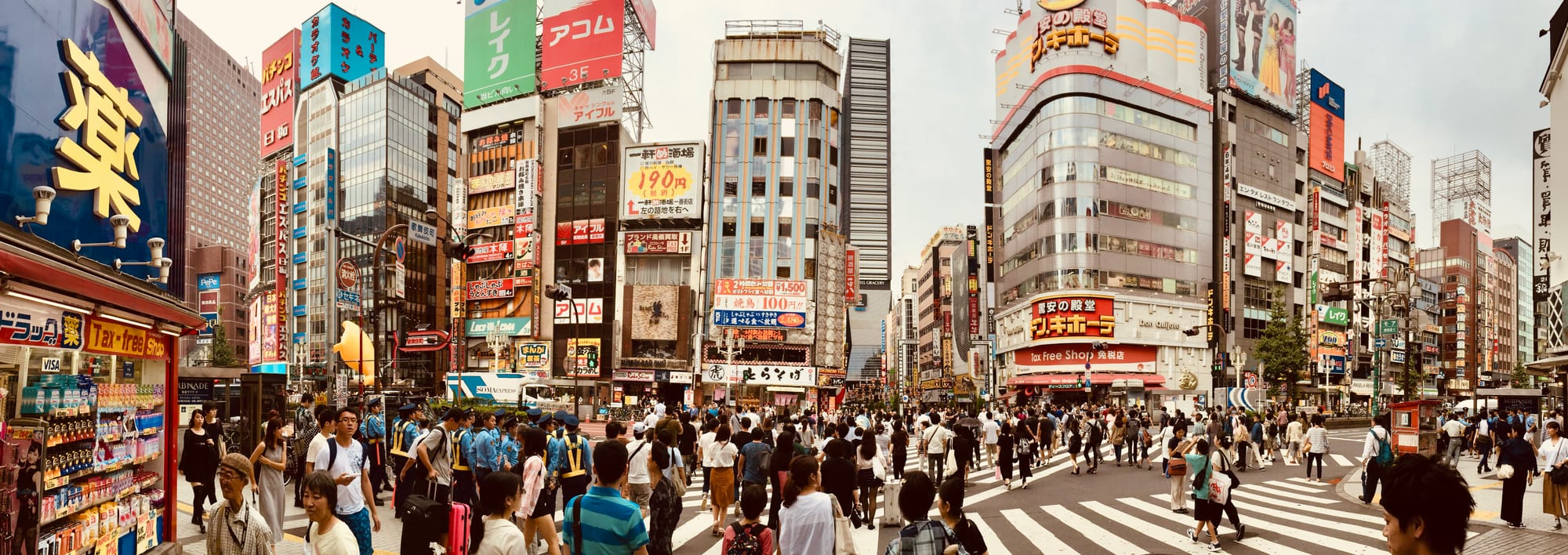
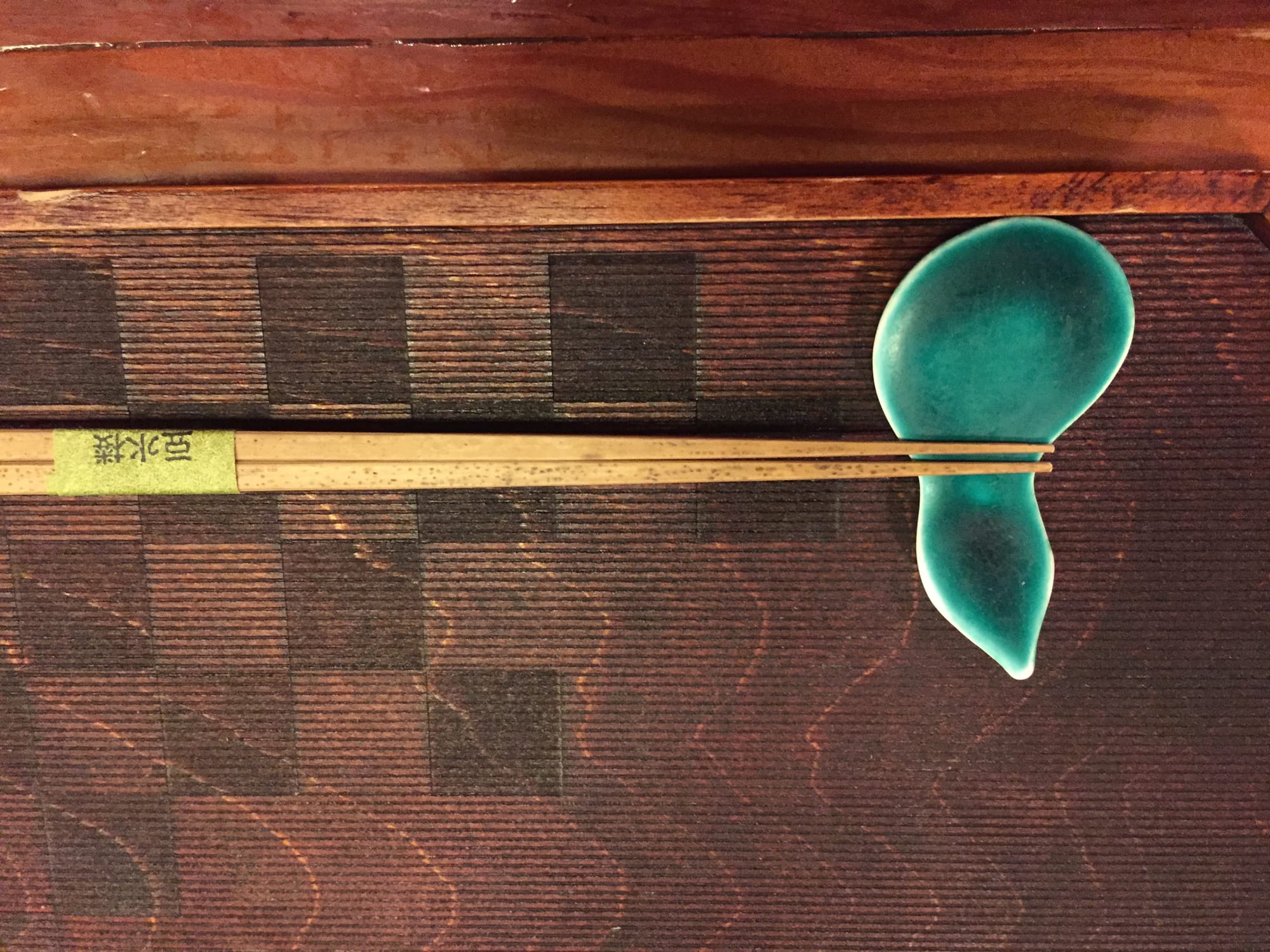
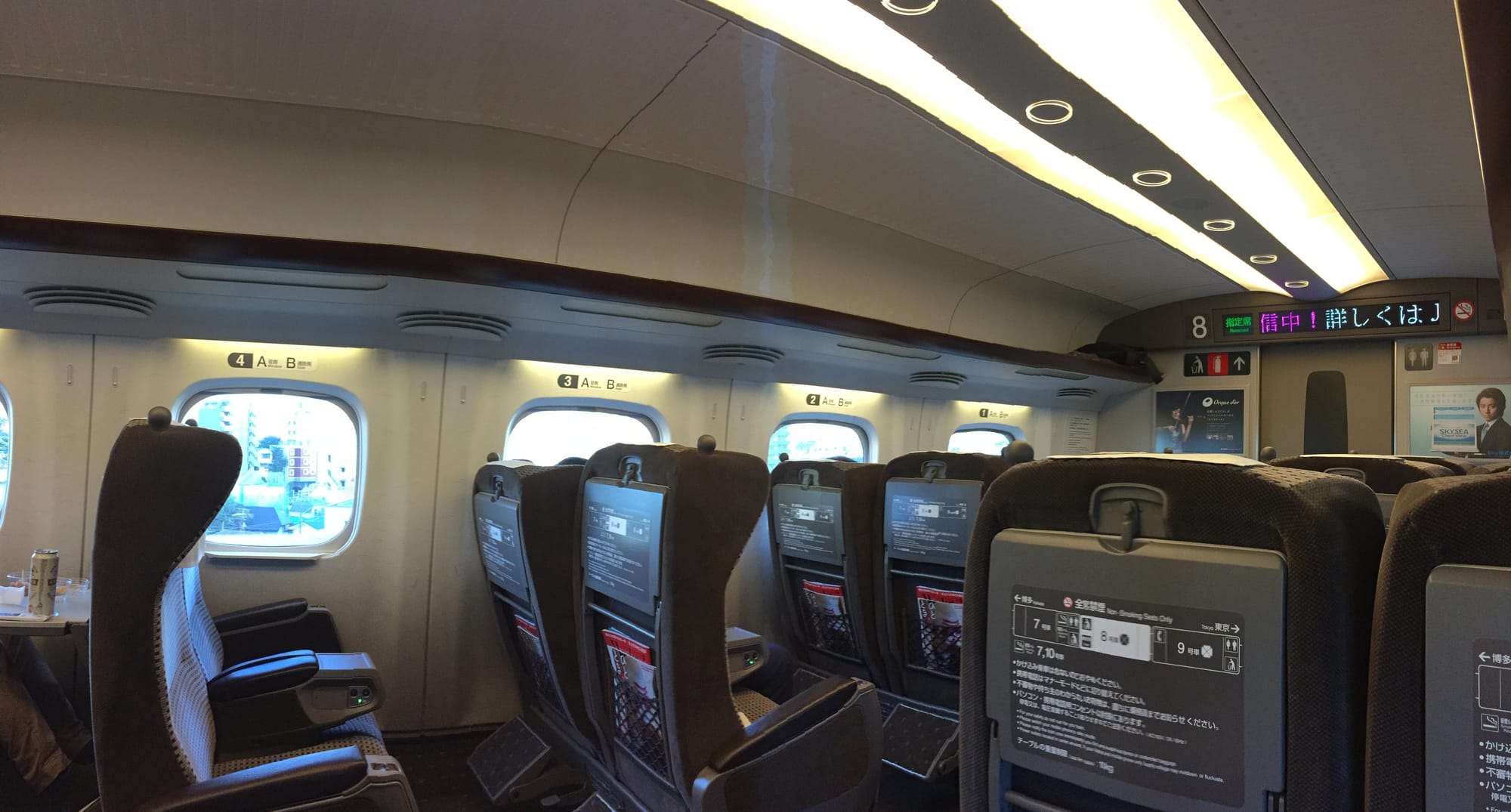
From left to right: Traditional entrance along Kyoto's Philosopher's Walk; Sand garden at Kogetsudai Temple, Kyoto; Reception at Ugenta Ryokan; Geishas strolling in the Gion District; Shibuya Crossing, Tokyo; a delicate place setting at a Kyoto Restaurant; the Shinkansen Bullet Train cabin -- At top, Ugenta Ryokan.




